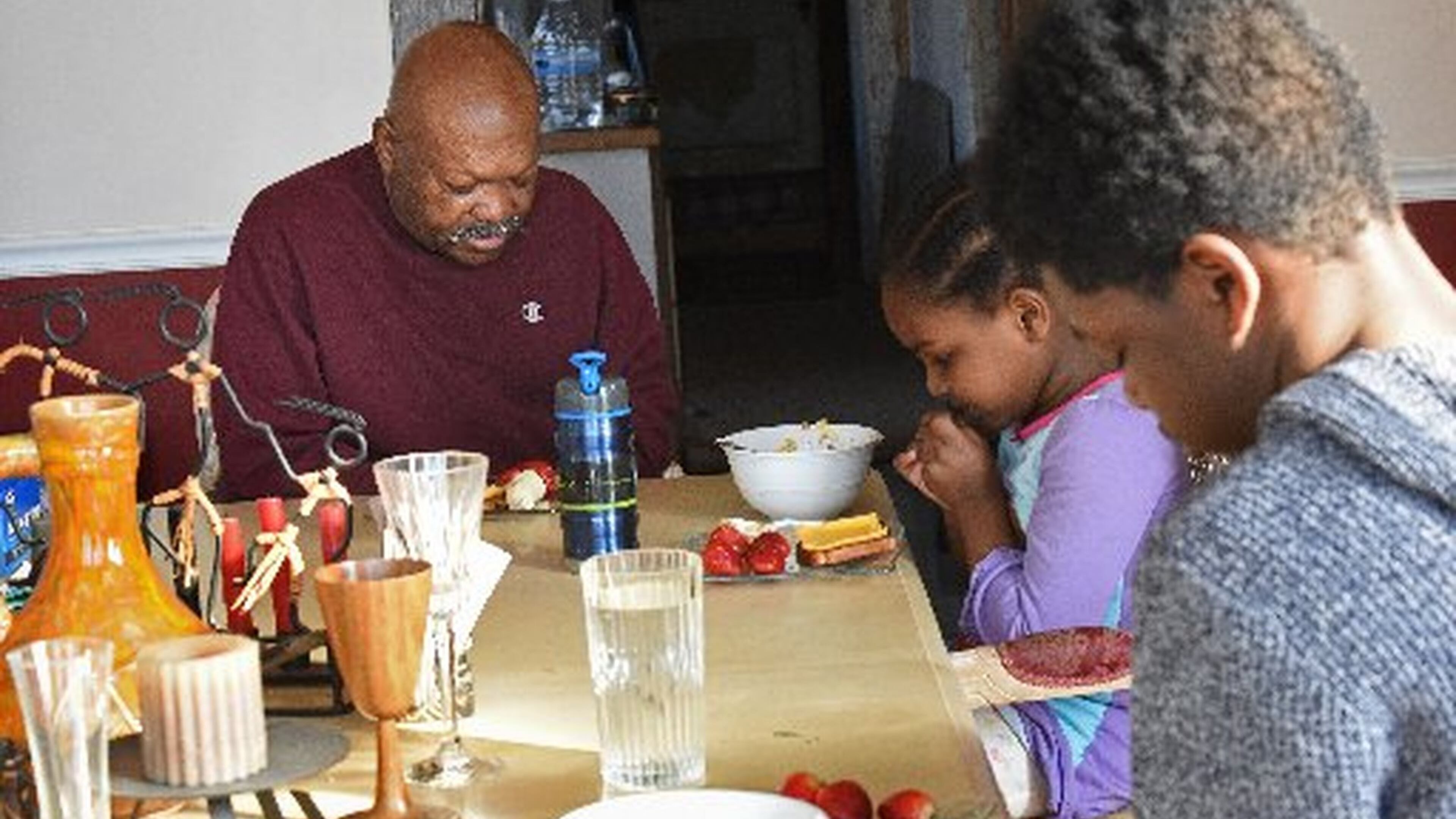This Life with Gracie: Is Georgia’s foster care system really in crisis?

One of the best things about being a grandparent, I hear, is you get to spoil the grandchildren, then send them home.
Eugene Vickerson didn’t have that choice. For more than a decade, he was like millions of other grandparents across the country. He was his grandchildren’s parent.
The proportion of children being brought up by grandparents, siblings or other more distant relatives, in fact, has risen dramatically over the past decade. In 2005, 2.5 million children nationally were living with grandparents who were responsible for their care. By 2015, that number had risen to 2.9 million.
Good news. A groundbreaking analysis released Monday by The Chronicle of Social Change, a national news site focused on children, youth and families, shows national foster care numbers may finally be trending downward. Nationally, an estimated 3,980 fewer children will be in foster care this year (439,020) than a year ago when the number totaled 443,000.
But here’s the bad news. The findings, titled “Who Cares: A National Count of Foster Homes and Families,” show a system that often fails to recruit and retain enough caregivers for the children, especially here in Georgia.
Of the 15 states that lost foster homes between 2017 and 2018, Georgia led the pack, shedding 37 percent of its non-relative foster care placements in one year. During the same time period, the number of foster kids increased.
“Bottom line is that without relatives, Georgia would have a plain foster care crisis on its hands,” said Chronicle Publisher Daniel Heimpel. “The problem is that about a third of all relatives don’t get the same level of supports that strangers would.”
Tom Rawlings, interim director of Georgia’s Division of Family and Children Services, said while the Chronicle’s findings spotlight an important issue, they are “a little misleading.”
The state did, in fact, close 1,140 foster homes, he said, but it was because of “good outcomes” — 483 were closed because there was a finalized adoption. In 2015, for instance, 800 kids were adopted from DFCS foster care homes. Last year, 1,200 were adopted.
RELATED: Who steps in when parents' drug use unravels children's lives?
“That explains why between 2017 and 2018, 500 homes closed,” Rawlings said. “An additional 75 to 80 homes were actually closed because they were relative foster homes and the child either went back to the parent or were in a long-term arrangement with a relative.

“To me, it’s not so much a question of how many homes we have, but whether we are continuing to recruit homes, support foster parents, and treat foster families we have as the heroes that they are,” he said.
Still DFCS’ long-term goal, Rawlings said, is to increase by 50 percent the number of relative foster homes because the agency realizes that sometimes removing a child from their home means removing them from their friends, schools, extracurricular activities, their neighborhood.
“We’ve preserved that extended family by keeping them with a relative and are more likely to have better outcomes,” he said. “There’s less stress because they are with someone they know. Oftentimes, these relatives are in the same neighborhood, so the child remains connected to the community. In addition, relatives often help facilitate reunification.”
That was certainly the case for Vickerson, but taking on the role of parenting his grandchildren alone was a shock to his system, mentally and financially.
At the time, Vickerson, 72, said he was retired and “just trying to survive from minute to minute.”
Then one day, he said, DFCS showed up unannounced with his grandson, then 9. Five years later, they came bearing his 16-month-old granddaughter.
RELATED: Church families open homes to children caught in opioid crisis
“I had nothing and didn’t know how to get it,” he said.
For years, Vickerson said he walked alone, unable to get any help from DFCS or the state.
“I complained about the system so much, the supervisor called me in and told me if I needed Pampers and food and a baby bed, I probably wasn’t the person the kids should be with,” he said.

It took nearly five years, but Vickerson eventually did get help.
According to the nonprofit Generations United, 22 percent of grandparents caring for grandchildren live below the poverty line. About 39 percent are over 60 like Vickerson. And because many are not licensed in the system, they are not eligible for the same services and financial support as licensed foster parents, who have access to services and can get financial assistance with everything from medical care to a clothing allowance.
This is why, Rawlings said, DFCS encourages grandparents to become licensed in the first place. The state pays licensed foster parents $26 to $30 a day. A relative receives $17 to $21 a day. Additionally, in the process to becoming licensed, relatives can receive training on how to support children who have suffered abuse or neglect and access to additional resources that will support them as caregivers.
Whether Georgia has enough foster homes is still up for debate. Vickerson’s daughter was finally able to take her children back. You can hear more about that and the state of Georgia’s foster care system at a panel discussion set for 3 p.m. Oct. 24 at the Freight Depot.
Both Rawlings and Vickerson will be on the panel, one of three scheduled to take place across the country hosted by The Chronicle of Social Change and co-sponsored by the Barton Child Law and Policy Center at Emory University.
Find Gracie on Facebook (www.facebook.com/graciestaplesajc/) and Twitter (@GStaples_AJC) or email her at gstaples@ajc.com.
EVENT PREVIEW
Who Cares — Finding Family for Georgia’s Foster Youth
3-5 p.m. Oct. 24. Freight Depot Blue Room, 65 MLK Jr. Drive SW, Atlanta. eventbrite.com.


